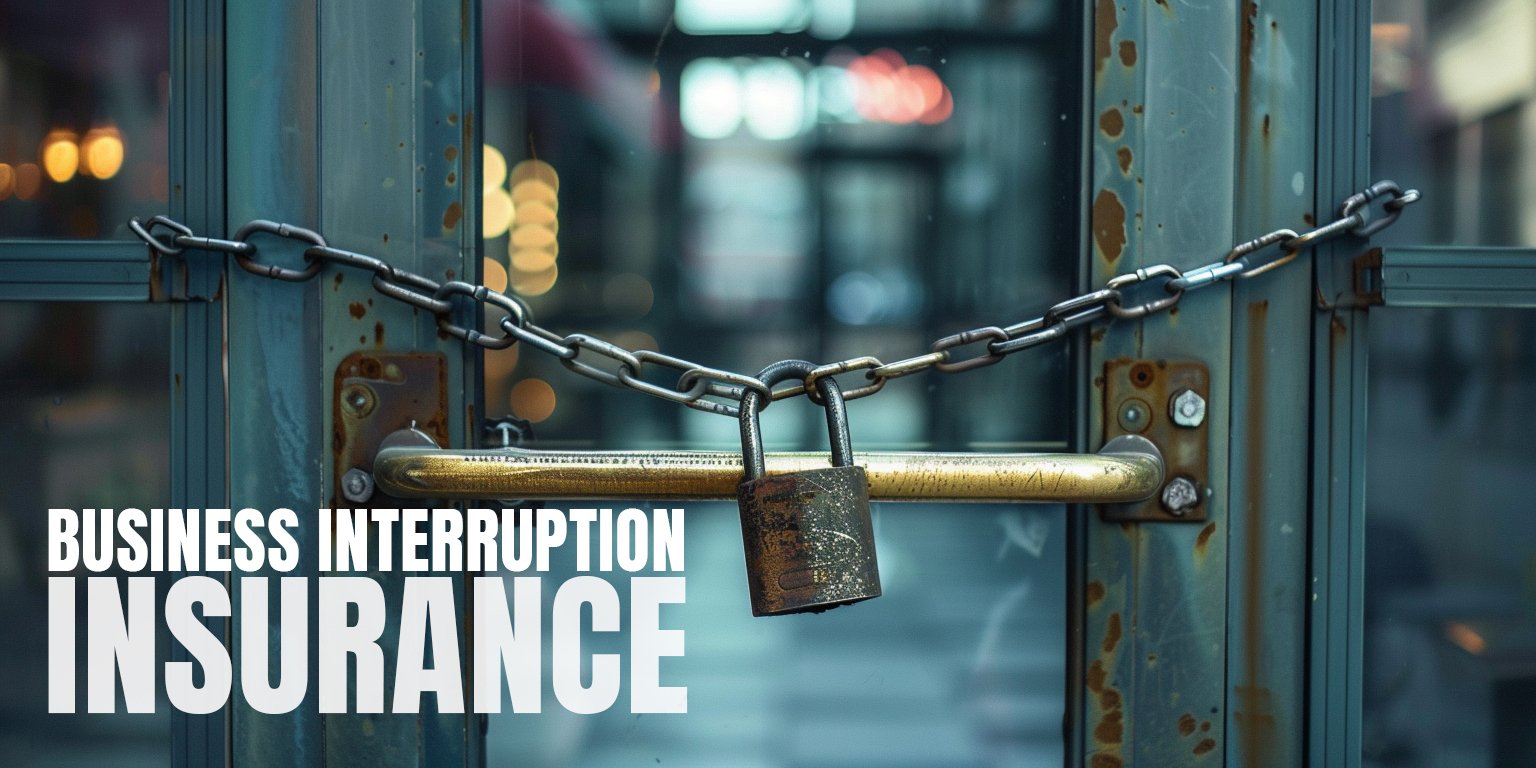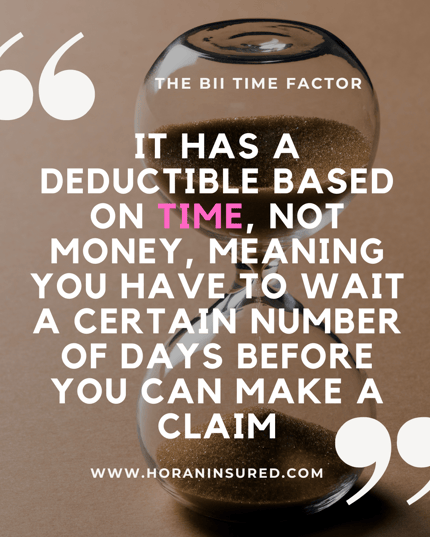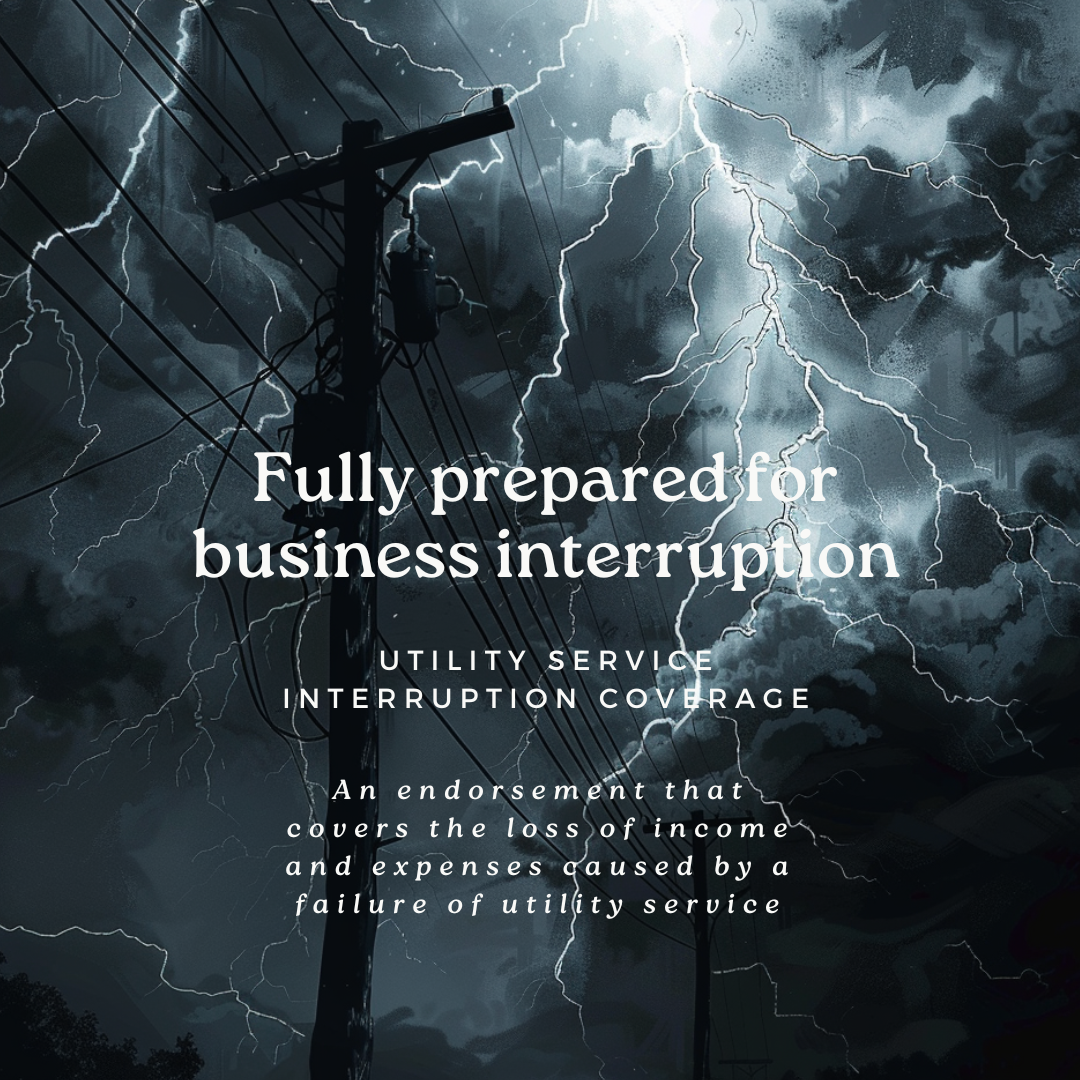Business Interruption Insurance: Essential Coverage for Your CNY Operation
June 20th, 2025
7 min read

Every business owner faces the fear of an unexpected closure. A fire, storm, or even a power outage can force you to shut down, leaving you struggling to cover expenses while your revenue stops.
At Horan, we understand the critical role your business plays in your life and your community. That’s why we provide information about business interruption insurance, which can help businesses respond to certain covered events.
In this article, we'll explore how business interruption insurance addresses income and expenses during a closure from a covered event. We'll also discuss what's typically covered and what's not, including specific exclusions such as viral and bacterial issues.
How Business Interruption Insurance Helps Pay for Your Lost Income and Expenses
As a Central New York business owner, you probably know that you need insurance to help cover the costs of physical damage to your property or liability claims from others. But what about the income you lose when your business has to close temporarily because of a fire, a storm, or other covered disaster?
That’s where business interruption insurance comes in.
Business interruption insurance can help pay for the income you would have earned if your business was operating normally. It also helps in covering the expenses you still have to pay even when you’re closed, such as
- rent,
- utilities, and
- payroll.
This way, you can maintain operations and keep your employees until you can reopen.
Most businesses, especially small ones, don't have enough cash reserves to survive a long period of closure. They might be able to fix their property and settle their liability claims, but they can't make up for the lost revenue.
Without business interruption insurance, they might have to lay off their staff, default on their loans, or even close their business. This coverage can provide composure and financial stability during certain covered events.
How the Time Deductible Works for Business Interruption Insurance
 One thing to know about business interruption insurance is that it has a deductible based on time, not money. That means you have to wait a certain number of days before you can make a claim. The insurance carrier typically excludes minor or short-term interruptions that don't significantly affect your business.
One thing to know about business interruption insurance is that it has a deductible based on time, not money. That means you have to wait a certain number of days before you can make a claim. The insurance carrier typically excludes minor or short-term interruptions that don't significantly affect your business.
For example, suppose a water main breaks in front of your Liverpool restaurant on a Saturday evening. That's a bad time for you, because you lose your dinner rush. You might miss out on thousands of dollars of income.
But if the water main is fixed by Sunday morning, and you can reopen, then you may not qualify for business interruption insurance. That's because it's less than 24 hours of closure, which is the minimum deductible for most policies.
The standard deductible for business interruption insurance is 72 hours, or three days. This means that business operations must be interrupted for at least three days before coverage for lost income and expenses is triggered.
Some carriers may allow you to lower the deductible to 24 hours, but not less. And some carriers may pay you retroactively from the time of the loss, but only if you meet the deductible.
That's why business interruption insurance is typically designed for long-term closures that can significantly impact your business. It's not for minor inconveniences that you can recover from quickly. You need to be prepared to handle those on your own.
How Utility Failure Can Trigger Business Interruption Insurance
Another type of coverage that can affect your business interruption insurance is utility service interruption coverage. This is an endorsement that can help cover the loss of income and expenses caused by a failure of utility service, such as electricity, gas, water, or communication, that originates away from your premises.
For example, if a storm damages a power line that supplies your building, and you have to close because you don’t have power, this coverage may help you.

Utility service interruption coverage is different from other types of property damage or liability claims you can make through your commercial property or general liability policies. It doesn’t matter if your building or equipment is damaged or not. It only matters if you can’t operate your business normally because of the utility failure.
Some businesses might be able to cope with a temporary loss of power, but others might not. It depends on the nature and location of your business, and the type and duration of the utility failure.
But you typically can't claim business interruption insurance for utility failure unless you have utility service interruption coverage (also called: off-premises utility interruption coverage). They’re linked together. Without the endorsement, you may not be covered for the loss of income and expenses caused by the utility failure. That’s why you need to check your policy and see if you have this coverage or not.
Business interruption insurance helps protect your business from income loss and additional expenses resulting from a covered event that forces a shutdown. To ensure comprehensive coverage, it's essential to secure endorsements and coverages relevant to your specific vulnerabilities, including utility service interruption.
Learn more about Off-Premises Utility Interruption Coverage for Your Business.
How Business Interruption Insurance Covers Your Employees’ Tips and Other Income
Another benefit of business interruption insurance is that it may help cover the tips that your employees would have earned. This is especially important if you're a restaurant owner.
Your employees rely on tips as part of their income, and they might lose them if your restaurant has to close. Business interruption insurance might help make up for that loss and help you retain your employees.
The main purpose of business interruption insurance is to replace the income that you lose when your business can't operate normally. It may help you maintain your cash flow and pay your bills.
But it only applies to covered circumstances, such as fire, storm, vandalism, or other disasters. You have to check your policy to see what's covered and what's not.
Business Interruption Insurance Has Its Limits
There are also some exclusions and limitations you should be aware of. Business interruption insurance doesn't cover everything, and it might not be enough for your requirements.
You have to weigh the pros and cons and decide if it's worth it for your business. Let's look at some of the common exclusions and limitations of business interruption insurance.
COVID-19: The Biggest Exclusion of Business Interruption Insurance
One of the biggest exclusions of business interruption insurance is COVID-19. No carrier would cover the loss of income caused by the government order to close due to the pandemic.
That's because the policy already excludes viral and bacterial issues that affect your business. So you typically can't claim that you were forced to close due to a civil or governmental reason.
That clause is meant for situations like this: A fugitive escapes from prison and hides in your neighborhood. The police shut down seven blocks of the area and don't let anyone in or out until they catch him. He holds some hostages and refuses to surrender.
It takes nine days before he finally gives up. During that time, your business is closed and you lose money. That may be covered by business interruption insurance.
But COVID-19? That's typically not covered. That would be too much for the carriers to handle. They would face severe financial impacts or raise their rates significantly. Insurance agents would lose their jobs or have to charge you very high amounts for your auto insurance.
That's why disastrous outbreaks like COVID-19 are commonly not covered by business interruption insurance. It's a nightmare scenario that no one expected or prepared for.
9/11 Changed the Definition and Coverage of Terrorism for Insurance Policies
Another example of how business interruption insurance can be affected by external events is 9/11. When the terrorist attacks happened, President George Bush declared it an act of war.
But that created a problem for the insurance policies that covered the World Trade Center. An act of war is automatically excluded from most policies, so the insurers would not have been required to pay for the damage or the lost income.
But then the government changed its mind and called it an act of terrorism. That's different. Terrorism is not an act of war, so it's not excluded from the policies.
That means life insurance policies, property insurance policies, and the extra policies that were bought just before the attacks could help pay out. That one little change could have made a significant difference.
That's what we deal with in our world now. Ever since 9/11, the insurance industry and the government have created new provisions and regulations for terrorism coverage. There is now a federal program called the Terrorism Risk Insurance Act (TRIA) that provides a backstop for insurers in case of a large-scale terrorist attack.
There are also new options and exclusions for terrorism coverage in the policies, depending on the type and extent of the event. Terrorism coverage didn't exist before, but it does now.
In essence, any income-generating business should strongly consider business interruption insurance. This coverage can help safeguard your revenue and the viability of your business in the event of a covered disaster, whether natural or man-made.
But you also need to understand what's covered and what's not, and how the definition and coverage of terrorism can change over time.
Learn more about policy exclusions.
How Your Annual Revenue and Actual Loss Sustained Affect Your Business Interruption Coverage
Business interruption insurance can help cover a range of scenarios that can cause you to lose revenue due to a covered event. But it also has a limit, which is based on your annual revenue. The insurance carrier will ask you how much you make in a year, and your rate will depend on that.
But you have to be accurate when reporting your revenue. If you say you make less than you do, you’ll pay a lower rate, but you’ll also get a lower limit.
For example, if you say you make $40,000 a year, but you actually make $120,000, you’ll only get $40,000 of business interruption coverage. That’s the max. They typically won’t pay you more than that. If you try to claim $120,000, they’ll say you only reported $40,000. That’s all you get. That’s very important.
But there’s a way to avoid this problem. You can buy actual loss sustained coverage. This means the insurer will cover whatever you lose, regardless of your annual revenue.
But if you do that, be ready for them to check your books and verify that you lost as much as you claim. They’ll look at your historical records and compare them to your current situation. So get your QuickBooks ready, because they’ll want to see the records.
Get Business Interruption Insurance That Addresses Your CNY Operation's Requirements
Imagine turning away customers, seeing your storefront silent, and watching bills mount with no income coming in. This challenging reality could become yours if disaster strikes and you're without business interruption insurance.
On the other hand, picture having the resources to respond when covered events disrupt your operations. With this coverage, qualifying events could trigger financial support that helps with bills, employee payroll, and rebuilding efforts.
Business interruption insurance can become a significant component of your risk management strategy, potentially helping you address financial burdens while you focus on getting your business operational again.
Don't wait for an unexpected event to hit. Business interruption insurance could be an important consideration for helping your business address certain interruptions.
We can provide information about coverage options. Click the Get a Quote button below to have one of our licensed insurance agents provide information about coverage for your specific CNY operation.
Also learn How Mechanical and Electrical Breakdown Insurance Can Safeguard Your CNY Business.
Daniel is an accomplished content creator. He has been working in publishing for almost two decades. Horan Companies hired Daniel as its content manager in November 2022. The agency entrusted its messaging to him. Since then, Daniel has written insurance articles, service pages, PDF guides, and more. All in an effort to educate CNY readers. He's helping them understand the world of insurance so they can make informed decisions.
Topics:



























